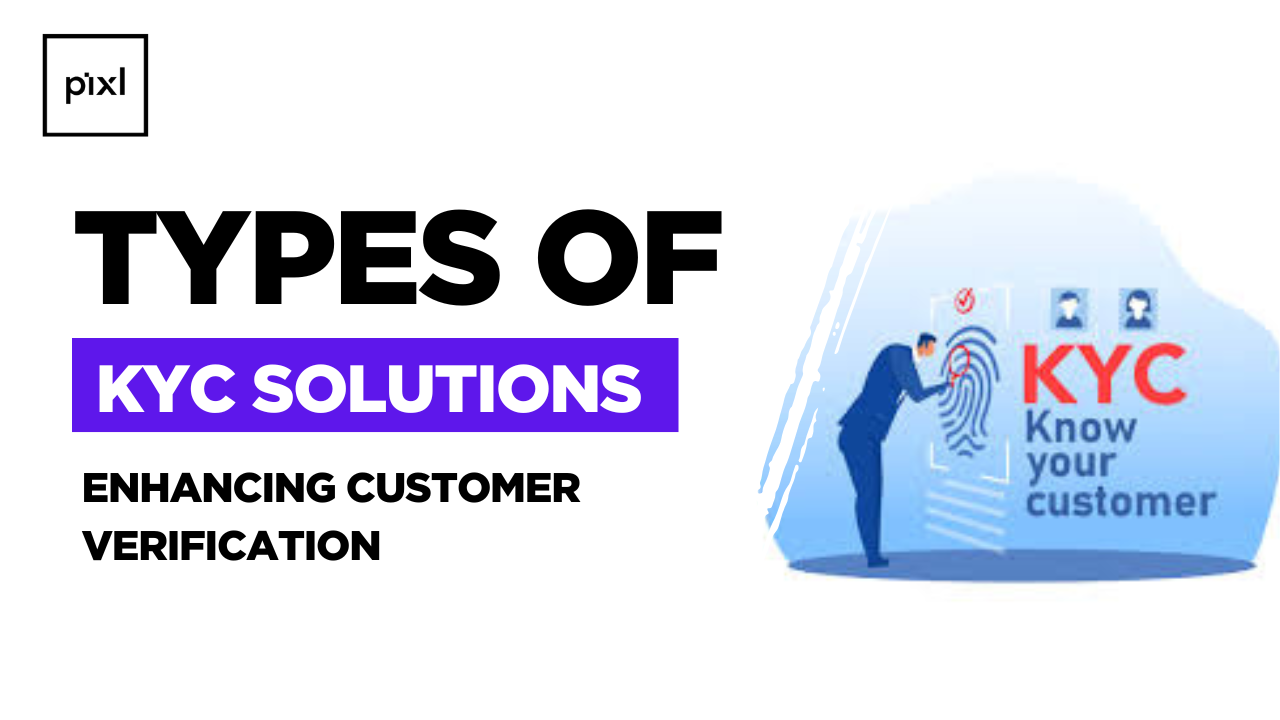With hacking and fraud on the rise, organizations must confirm their customers’ identities. This case uses various KYC (Know Your Customer) solutions. They help organizations reduce fraud, meet regulations, and gain clients’ trust. It may be beneficial for businesses to know the different kinds of KYC solutions that exist to guide them to what is best for them.
What is KYC?
KYC stands for Know Your Customer. It is a technique that organizations use to verify customers’ identities. This is now vital for banks and financial institutions. They must avoid identity theft, fraud, and money laundering. KYC aids in creating a sound relationship between businesses and their customers since unauthorized people cannot access these services.
Different Types of KYC
KYC, or Know Your Customer, refers to measures by banks and financial institutions to verify customers’ identities. Below are different types of KYC procedures. They are considered to guarantee that customer identification is safe and credible. The most commonly used forms are Offline KYC, which is also known as In-Person Verification or IPV, and Aadhaar-based eKYC. The traditional method uses the ID card for physical identification. In the Aadhaar-based KYC, identification is done online using the Aadhaar card. Whereas IPV or offline KYC engages a representative to physically ID and address a customer. In any case, the ultimate objective of the KYC approach is to ensure that customers are genuine and that fraudulent cases cannot take place.
1. Paper-based KYC
Offline KYC is a common method whereby identification is done physically using hard copies of the document. People must be physically present at a bank, a financial institution, or a registered KYC Registration Agency. They must surrender a signed form with their photograph and self-attested copies of their identity and residence proofs.
2. Aadhaar-based eKYC
This method uses data to verify online identities with the UIDAI. Aadhaar-based eKYC can be done in two ways:
OTP-based eKYC: You can confirm your identity by providing a one-time password (OTP) sent to your Aadhaar-linked mobile number.
Biometric eKYC: You can prove your identity using fingerprints or by using an UIDAI registered device.
3. Digital KYC
Digital KYC is a process in which people submit scanned copies of their KYC documents online. In this process, you join your live photograph with the Officially Valid Documents (OVDs) with geo-tag integration. They are then compared to the details provided earlier by the paper submitted in order to ascertain the correctness of the details.
4. Offline KYC
Offline KYC unlike paper-based or in-person is convenient since the customers can download the Aadhaar Paperless Offline eKYC document and present it to the institution in question. Any information in the document can only be used for KYC verification after the customers have provided consent.
5. Central KYC (CKYC)
CKYC means to provide KYC documents from those maintained. They must be updated and certified copies. This is to a central registry, the Central Registry of Securitisation Asset Reconstruction and Security Interest of India (CERSAI). Once verified, a customer’s KYC records are stored in a central database. Clients are issued a 14-digit ID number for screening at other institutions.
the pixl.ai is best CKYC
6. Video KYC
In video KYC, all the checks are done over the internet, and the use of video calls forms part of it. The customers provide copies of their identification cards and record a live video, which the agent later checks. This method is also very safe and it provides for fraud-proof identification. pixl.ai have the best video kyc solution for banking and NBFCs
All types of KYC are important in assisting financial institutions in the identification of customers while simultaneously banning fraud and checking on compliance with the set laws.
Why KYC Solutions are Essential for Businesses
KYC solutions are important for any type of enterprise and especially important for financial organizations. Here’s why implementing the right types of KYC is essential:
Preventing Fraud: KYC means that the customer on the other end is real and this way it assists businesses in identifying frauds.
Regulatory Compliance: In many fields including the financial one, KYC is a mandatory compliance measure. The KYC solutions help businesses meet local and global legal requirements.
Building Trust: A good KYC process is key to establishing credibility between organizations and consumers. Consumers become assured that their identities and contracts are being secured by the business company.
Effective Risk Management: Good KYC lets businesses assess a customer’s risk level and take precautions.
Improved Customer Experience: The use of digital, and video KYC solutions has therefore helped to ma+-ke it easier for the customers to complete the onboarding process since it has become more seamless for them.



